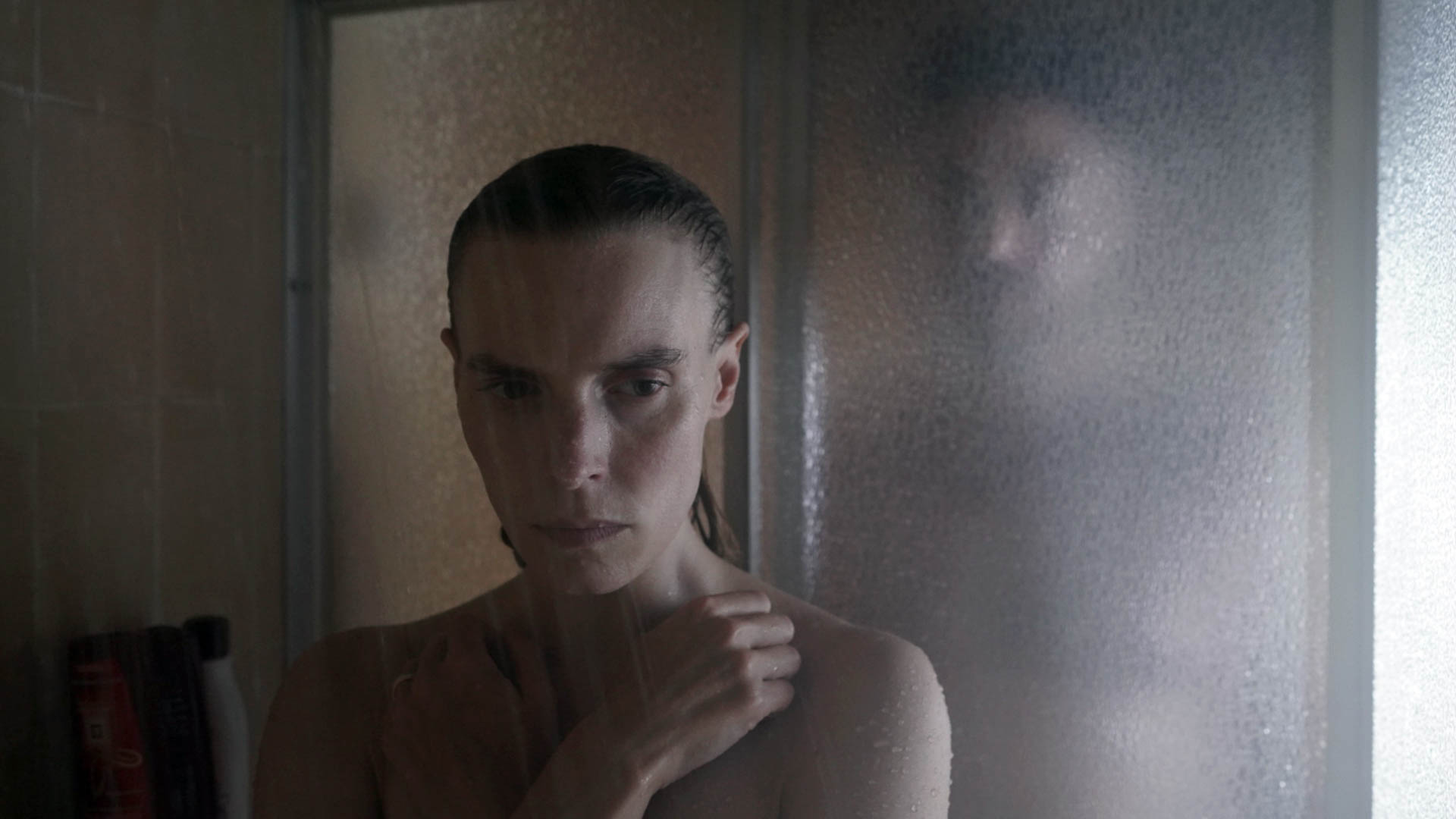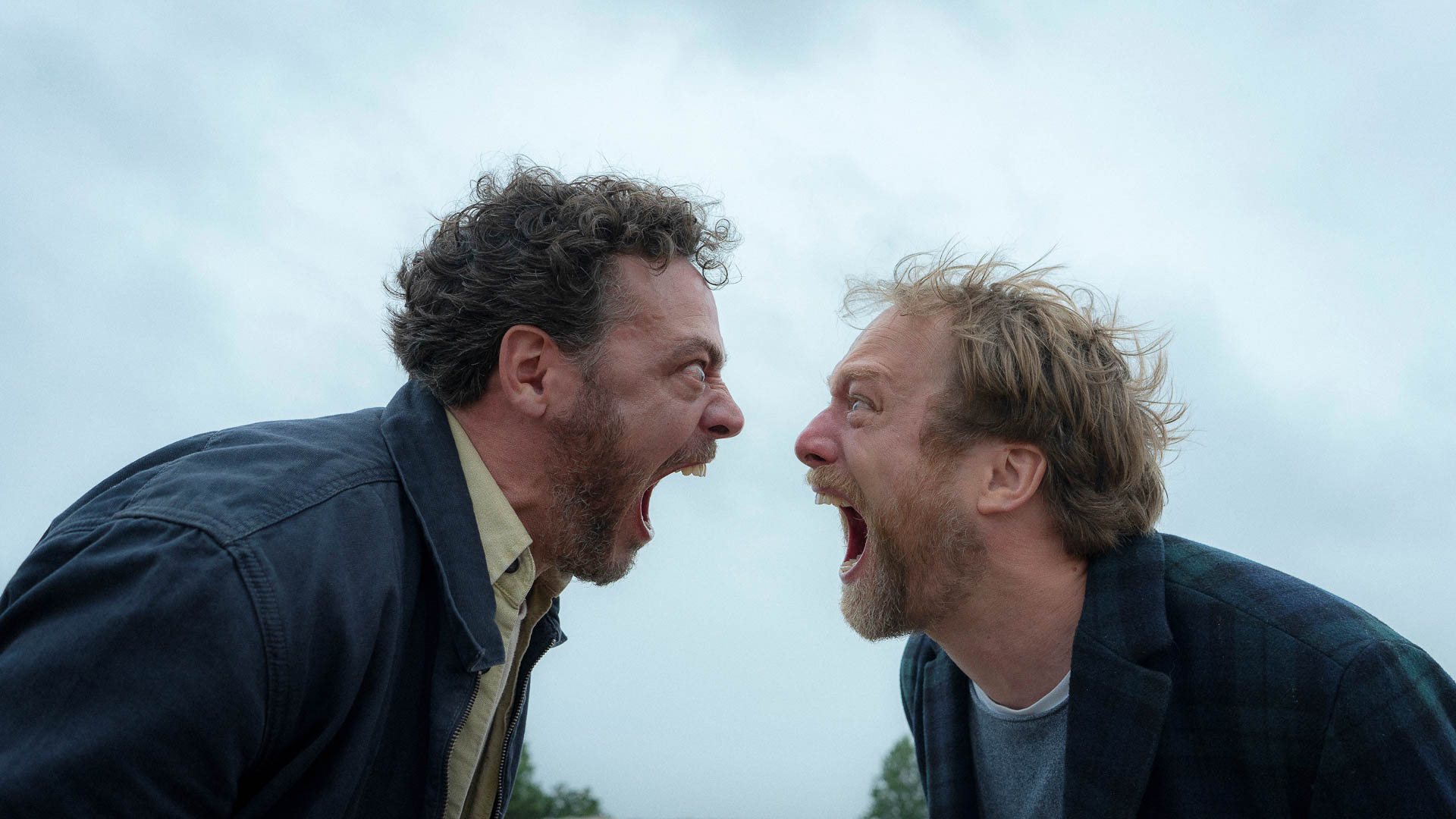Killed Off: The Ultimate Villain in Speak No Evil

Critics Campus 2022 participant Lamya Nawar dissects the inertia and contrivances – depicted and in delivery – at the heart of Christian Tafdrup’s Speak No Evil.
“Imitation is the highest form of flattery” is what I imagine filmmaker Jordan Peele tells himself so he can sleep at night. Ever since the release of Get Out (2017), there has been a slew of low-quality horror films that have similarly branded themselves as ‘social thrillers’. Most are expectedly awful, either lacking in horror or genuine social insight. Christian Tafdrup’s latest offering in this subgenre, however, is a novel surprise – because it manages to fail on both counts.
Speak No Evil opens strongly, with a car hurtling through a pitch-black forest. The scene cuts to a Tuscany resort, where a middle-aged Danish couple, Bjørn (Morten Burian) and Louise (Sidsel Siem Koch), watch their daughter, Agnes (Liva Forsberg), splash around in a sparkling pool. These discordant visuals allude to something sinister creeping around the corner. When the charming Dutch couple Patrick (Fedja van Huêt) and Karin (Karina Smulders) befriend the family, later inviting them to stay at their cottage in Holland, we are already on edge.
The set-up shows great promise. Its focus on social interactions with an unusual, unknown element harks back to acclaimed Peele and Ari Aster works. In Get Out, a Black man meets his white girlfriend’s family for the first time, while in Midsommar (2019), a group of American anthropology students fall into the clutches of a Scandinavian cult. In both films, the way the social relationships develop – or devolve – is symptomatic of broader social ills that point to the insidiousness of liberal racism or the transformative nature of grief, respectively. In Speak No Evil, however, new relationships with strangers are the object of study.
Tafdrup aims to explore the muddling mores of middle-class manners. When Bjørn and Louise arrive at Patrick and Karin’s cabin in the Dutch forest, little ambiguous acts of aggression strain their relationship. Karin expects Agnes to sleep on the floor of their child Abel’s (Marius Damslev) bedroom. Patrick cajoles Louise into trying a bit of meat despite knowing she is a vegetarian. As the Danish couple avoids making a fuss, awkwardly deferring to their companions, Tafdrup denies us the catharsis of resistance – a trademark of horror – and, in this subversion, we sit uncomfortably with his central thesis: that politeness can encourage us to violate our values.
But Tafdrup does not, or cannot, tell us anything else. He hammers this singular message into the audience with brute force. His weapon? A terrifying, spoiler-ish score that underscores most domestic scenes. Mundane moments of the family slicing vegetables, or visiting a playground, are interrupted by feverish strings.

Speak No Evil
“The problem was, without that kind of music, people thought they were about to see some kind of romantic comedy,” Tafdrup explained in an interview. While this may be true, it speaks to an over-reliance on sound to build atmosphere, which could have been conveyed by injecting specificity into his setting. The Dutch couple’s cabin in the woods is so generic – but not even generically creepy – that even the 2011 film The Cabin in the Woods would find no use for it. This is a key oversight, as world-building is fundamental to social thrillers. Both Get Out and Midsommar isolate their characters in nightmare scenarios to force them to face their deepest, darkest despairs.
Tafdrup is a self-admitted horror newbie, but this trial-and-error approach to horror filmmaking sometimes makes it feel like he is taking cues on how to be scary from Monsters, Inc. He relies on predictable beats – creaking floors, flickering lights, a child whining in the dark – to invoke fear. Most of the time, this is just absurd.
A huge narrative oversight is that Bjørn did muster up the courage to leave, only to be stopped by evil cinematic forces. If not for his SUV careening offroad or his phone losing signal, Bjørn and his family could have escaped. Jordan Peele has said that, in social horror, “the ultimate villain is society”. In Speak No Evil, however, Tafdrup is the villain. He is so intent on keeping the family there that he resorts to these generic contrivances. Middle-class manners may have threatened their agency, but poor storytelling is still the ultimate killer.
And yet, among all these narrative contortions, there are real moments of intellectual depth. What drives some to be bound by manners, and what causes others to dismiss them? When Patrick takes Bjørn out for a spin in his car, he breaks down. “I’m so tired of smiling all the time,” he confesses, and the two elope on what I imagine a Men’s Mental Health Retreat would look like: screaming in each other’s faces, smashing beers and belly-diving into icy pools. This entire sequence is a delicious insight into Bjørn’s otherwise stolid character. But this opportunity at an intimate character study instantly evaporates as we’re propelled back into the two couples’ inert tensions. Could part of Bjørn’s deferential behaviour come from a mixture of envy and mislaid admiration (even desire, if his compulsive fascination with Patrick were to mean anything)? Speak No Evil could have been a terrific film had Tafdrup given in to these natural questions. Instead, he circularly obsesses over manners, like a dog chasing its own tail.
As we spend the film’s entire 97-minute runtime waiting for something – anything – to happen, the impact of the twist far outstays anything else by the time we get to the end. It is inherently disturbing because of its subject matter and, as such, feels like an undeserved win on Tafdrup’s part. As if celebrating this fact, the ending self-congratulatorily references Michael Haneke’s critically acclaimed Funny Games (1997) – a film in which the violence was so senseless, it made depressing sense. But here, the final act is so elaborately sadistic that it’s baffling, even random. And so, instead of being an intelligent callback to its forebear, Speak No Evil renders itself a pseudo-parody, the very comedy that Tafdrup was worried about creating.